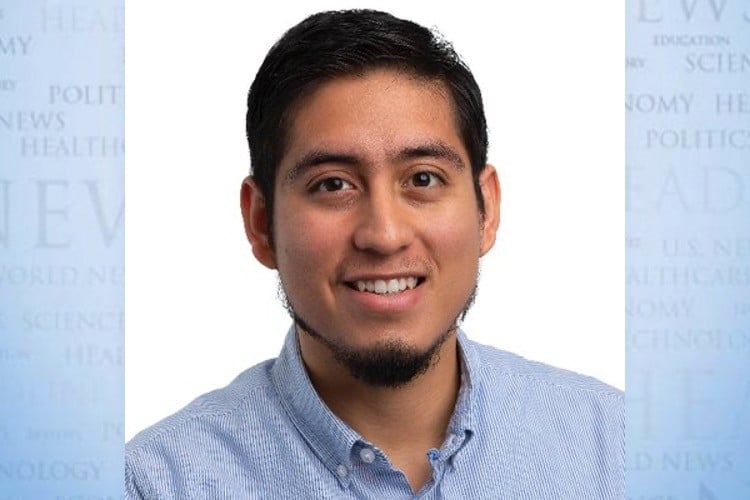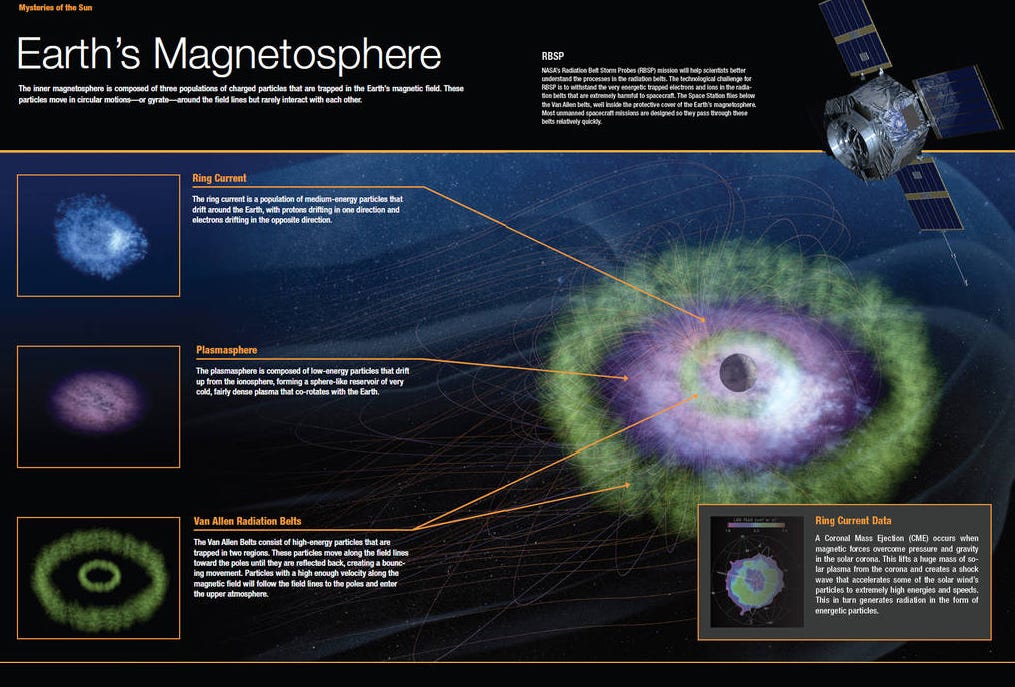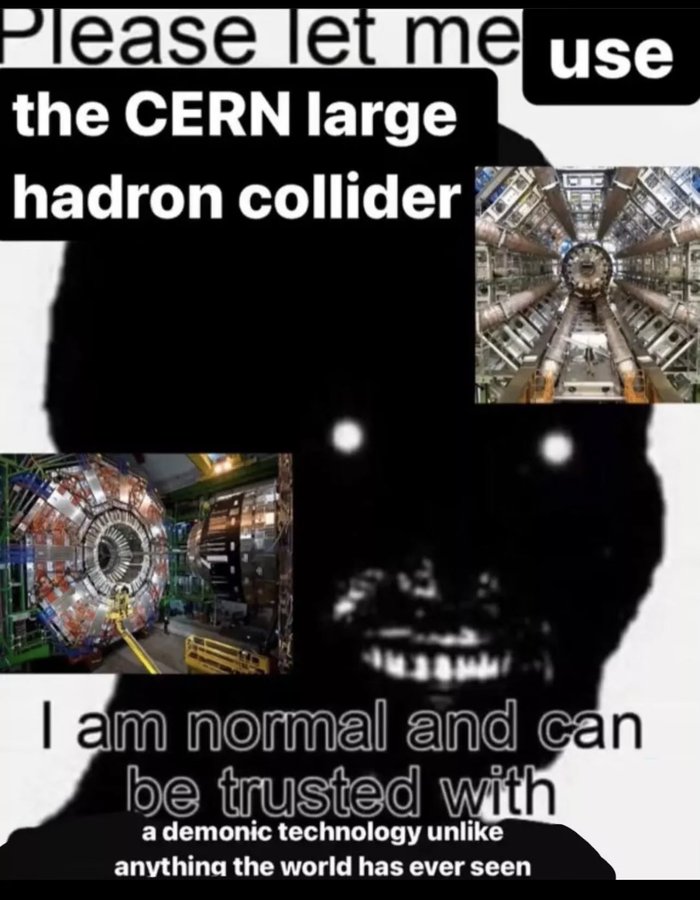This information will help you to understand the roots of our current industrialized society and to understand the technologies that are ruling our lives.
The most important thing to remember is that Modern “Science” and Magick are one and the same. Scientists and the Academic World want you to think that they are above spiritual / religious things. But, in truth, the only thing that they hate is TRUTH. They are very connected to spirits. Everything they do is driven by spirits. The Ancient Ones, whom they serve. The spirits of the fallen. They want you to be under the dominion of the spirits again. Like it was before CHRIST came to set us FREE.
This particular post is one of those that I thought I had already posted, Turns out when I went to look for it to add the reference to a post I am currently working on…I found out it never got posted. That happens. I have so many posts that I are in process at any one time, and so many new things are happening everyday… sometimes, I get pulled away and never get back to what I started.
Apparently, it was not the right time to post it, whereas now seems to be.
ANYWAY… this is a very important topic. I am currently working it from another angle. I suppose it would be best to make this a series.
I hope that you will stay with me. This information is VERY INTERESTING and VERY ENLIGHTENING.
If you have not seen my earlier, related posts, check them out.
Science – The MagicK that will DESTROY Mankind
MAD, MAD SCIENTISTS – IN THEIR OWN WORDS!!
TECHNOLOGY BRINGS US OUR LATEST DEVICE ANOTHER BOX WITH A SCREEN
DWAVE – ADAPTING EARTH FOR THE ARRIVAL OF THE FALLEN – Restored 2/26/21
CAN YOU HEAR IT NOW????
Is AI a Portal for Demonic Spirits?

This is one great truth that few today understand. But it must be understood if one is to completely comprehend the relationship between the technological and the spiritual, as well as the full possibilities — for good and evil — that modern technology presents to us.
First, it’s important to understand what occultism is. While the layperson believes the occult to be synonymous with practices such as witchcraft and voodoo, occultism is more broad than that and can take various forms.
The word “occult” means hidden, and occultism refers to knowledge that, while it falls outside the scope of mainstream religion and science, is not necessarily in conflict with them. In fact, many of the Western occult traditions, such as alchemy and Hermeticism, have strong ties to or are derived from a Christian foundation.
As knowledge becomes more known and used, it ceases to be considered occult because it’s no longer hidden. Accordingly, the occultism of yesterday is often the science of today. Astronomy sprung out of the occult practice of astrology. Chemistry came from alchemy. Psychology came from ancient mental magic.
Likewise, the technology that is so commonplace today — computers, microchips, touch screens — is also derived from the occult.
Think about this: One common practice in various occult disciplines is the use of a black mirror to evoke spirits, be they angels, demons, or the deceased.
Often, such a ritual involves the lighting of a candle in front of a black mirror in a dark room. The practitioner stares fixedly at his own reflection in the mirror while using verbiage to evoke his entity of choice. After several minutes, the individual’s reflection in the mirror will vanish. It will then be replaced by the face of the desired entity, with whom one may then converse.
Today, most of us would not consider ourselves occultists or think of dabbling in such rituals. And yet … have we not all, in a sense, become practitioners of the black mirror technique? Look around you. Television screens, computer monitors, smartphones.
They are all black mirrors. And when we use these devices, we, like a witch peering into her crystal ball, are able to see images and read information that traverses space and time. And we are able to communicate across vast distances with other human beings — and now, with artificial intelligence.
Another example: The fact that breathtaking amounts of data are condensed on small silicon chips, enabling computational powers formerly thought to be the stuff of fantasy, is something so normal to us now that we don’t even bat an eyelash at the technology.
But this, too, has its roots in the occult.
Modern Solomonic magic involves complex ceremonies to evoke these trapped spirits for one’s purposes.
Trapped … as in silicon?
|
Boko Harambe
@BokoHarambe
All technology is possessed. Circuits and microchips are just wards and runes we trap demons in and command to do our bidding.
Quote Tweet
@jmeickle
Me in 2005: computers aren’t magic, they’re just machines that do exactly what you tell them Me in 2022 exhaling an enormous vape hit: SO, the first thing to know about computers is, you never give one your true name
|
This is a first for me! Surreal rectangular sunset in Texas…
Your daily dose of natural disasters and amazing phenomena for May 19, 2023…
This strange rectangular sunset was captured @ Spring, TX this past weekend after heavy storms. Amazing!

Great… ‘Radioactive cloud’ from destroyed depleted uranium shells threatening Europe…
Aurora blobs – Completely new proton auroras… On 23 April 2023, mysterious “aurora blobs” stunned observers across Europe. According to space physicist Toshi Nishimura of Boston University, these strange auroras, which had never been seen before, were identified as “proton auroras” originating from Earth’s ring current system.

Unlike Saturn, Earth has invisible rings that are made of electricity, not ice. This donut-shaped circuit, which carries millions of amperes, grazes the orbits of geosynchronous satellites and has a significant impact on the severity of geomagnetic storms. During strong geomagnetic storms, protons crash out of this ring system, creating a secondary electron shower that hits the atmosphere and leads to these proton auroras. Earth is the only rocky planet in our solar system that has such a ring system!

California officials investigating loss of 30-ton shipment of explosive chemicals… 60,000 pounds of ammonia nitrate was stolen off a train between Wyoming and California. Let’s track it down and stop it before it is used…
spacer
Crypto:Bitcoin: 3KpaRNh28JhnpwfcHq3QkPfBsNL3tSf5CsEthereum: 0x5f37Ed27519E2e750DAa3EA8CbF43EDD2859fb6dLiteCoin: Ld8HnbtfojQmoCotVwvawzyBbPPAUJTNvG\BSV: 12uFKAYRhsKodLfJfP88H8Eb1ULmNv1eAE
Originally Uploaded December 4th 2019″ ]]]
All rights belong to their owners. Enjoy the content. Kind regards, Miqlos
This week we explore various stone/rock artifacts from the ancient world & at times we question whether or not it is ours or ancient alien technology on display. An amazing Freaky Friday, so hold on tight, this goes full woo early!
Tesla Technology, Dopplegangers, Walking Sharks & Scottish Shapeshifters 
Just a crazy stream for a Saturday night. You have to tune in & watch it for yourself to see what i mean. Scotty Lopez is in great form as we go for Tesla to shapeshifting, hooved entitites all in the one stream

May 22nd, 2020.
Technology Exists that Allows Alien Races to Remove Souls from People’s Bodies
COAST TO COAST AM – Also thinks that technology exists that allows the alien races to remove souls from people’s bodies so that they can be inhabited by other beings while the original soul is kept in a container that Tyler described as a type of “Faraday cage” that blocks or traps electromagnetic energy. He believes that this has happened to him. He does not think that anything like a disclosure of this explosive information will be forthcoming anytime soon.
A media phenomenon, Coast to Coast AM deals with UFOs, strange occurrences, life after death, and other unexplained (and often inexplicable) phenomena.
This channel is managed by Zohar Global Group UK and AdRev, USA
© 2022 PARADISE MOUNTAIN CHURCH INTERNATIONAL | ALL RIGHTS RESERVED
#TPMR #PERA #McGuire
This video is covered by a Creative Commons-Zero “No rights Reserved” license. It’s free to reuse, edit, remix, or plagiarize without attribution. Though if you do try to plagiarize, I’ll make fun of you. No rights reserved but all mights reserved. Hail Satan!
Invisibility Technology & the Philadelphia Experiment
DateTuesday – April 30 1996HostArt Bell
Investigator and researcher Marshall Barnes appeared during the first two hours talking about the legendary Philadelphia Experiment. Using documents, photographs, and scientific papers, he concluded that the there was an attempt to cover-up the experiment, along with technologies using cloaking and camouflage as a way to induce invisibility. According to Barnes, during the years of WWII, firms, university departments and elements of the US military pursued a project that initially involved the idea of repelling incoming projectiles via the application of strong electromagnetic fields. However this quickly evolved into the use of such fields to accomplish optical invisibility via induced mirages in the air and then radar invisibility.
Art talks about UFO reports blinking in and blinking out. Barnes reveals he saw something like that and concluded it was a top secret government plane– a glowing object being escorted by two F-16s near Wright Patterson Air Force Base. Barnes also discusses the alleged Montauk time travel experiments.
In the show’s latter half, Art talks about news of the day, including updates on the Montana Freemen, higher gas prices, and whether to upgrade to Windows 95. He also presents Open Lines.
 5921:18:02
5921:18:02John Lear, Richard C Hoagland Moon Structures & Retro Engineering of Ancient Technology
COAST TO COAST AM INSIDER Archived Show – Former aviation pilot John Lear returned for a discussion about photographic evidence for cities and mining operations on the He said that mining operations for such substances as helium-3 have been going on for years, and that antigravity ships, secretly launched from Antarctica, arrive at the moon in only one hour’s time. Joining the conversation Richard C. Hoagland concurred with Lear that there are artificial structures on the moon, yet he suggested they may be ancient rather than new.
A media phenomenon, Coast to Coast AM deals with UFOs, strange occurrences, life after death, and other unexplained (and often inexplicable) phenomena.
Channel Managing Agent Zohar Entertainment Group International Inc, USA AdRev, USA
The History of Magic
Magic, it is said, is older than science, and older even than religion.
Posted August 26, 2020 Reviewed by Jessica Schrader

The word “magic” derives from the Latin, the Greek, the Old Persian, and, ultimately, the Proto-Indo-European magh, “to help, to be able, to be powerful,” from which also derive the words “almighty,” “maharaja,” “main,” “may,” and… “machine.” We come full circle with Clarke’s Third Law, which states: “Any sufficiently advanced technology is indistinguishable from magic.”
spacer
|
magic (n.) |
|
magic (adj.) |
| *magh- Proto-Indo-European root meaning “to be able, have power.” It forms all or part of: dismay; deus ex machina; may (v.1) “am able;” might (n.) “bodily strength, power;” main; machine; mechanic; mechanism; mechano-; mage; magi; magic. |
Magic, like religion, is deeply embedded into the human psyche. Though it has, effectively, been banished from the land, still it surfaces in thought and language, in phrases such as “I must be cursed” and “He’s under your spell”; in children’s stories and other fiction; and in psychological processes such as undoing, which involves thinking a thought or carrying out an act in an attempt to negate a previous uncomfortable thought or act.
| Yes, it had been effectively banished from the land, since the Messiah came to set the captives free. It could not have been banished if it was a good thing. The people turned away from it when they learned they did not have appease the spirits, or fall prey to evil doers. Yes, the workers of iniquity have kept the allusion of magic alive through art, stories, the goverment education system and the psychology which is a form of witchcraft. |
Examples of undoing include the absent father who periodically returns to spoil and smother his children, and the angry wife who throws a plate at her husband and then tries to “make it up” by smothering him in kisses. The absent father and angry wife are not merely trying to make amends for their behaviour, but also, as if by magic, to “erase it from the record.”
Another example of undoing is the man who damages a friend’s prospects and then, a few days later, turns up at his door bearing a small gift. Rituals such as confession and penitence are, at least on some level, socially condoned and codified forms of undoing.
“Magic” is difficult to define, and its definition remains a matter of debate and controversy. One way of understanding it is by comparing and contrasting it to religion on the one hand and to science on the other.
Historically, the priest, the physician, the magician, and the scholar might have been one and the same person: the shaman, the sorcerer.
| in Pagan Religion this was true. Without a relationship with the Creator, the masses were under the dominion of the demonic forces. Religion was made up by the spirits, they desired and demanded worship. In the Roman Catholic Church this continued because the ROMAN Catholic Church served the Roman gods and goddesses. |
In the West, pre-Socratics such as Pythagoras and Empedocles moonlighted as mystics and miracle workers—or perhaps, since the term “philosophy” is held to have been invented by Pythagoras, moonlighted as philosophers. Pythagoras claimed to have lived four lives and to remember them all in great detail, and once recognized the cry of his dead friend in the yelping of a puppy. After his death, the Pythagoreans deified him, and attributed him with a golden thigh and the gift of bilocation.
In Plato’s Phaedrus, Socrates argues that there are, in fact, two kinds of madness: one resulting from human illness, but the other arising from a divinely inspired release from normally accepted behaviour. This divine form of madness, says Socrates, has four parts: love, poetry, inspiration, and mysticism, which is the particular gift of Dionysus.
While Socrates, in some sense the father of logic, seldom claimed any real knowledge, he did claim to have a daimonionor “divine something,”an inner voice or intuitionthat prevented him from making grave mistakes such as getting involved in politics, or fleeing Athens: “This is the voice which I seem to hear murmuring in my ears, like the sound of the flute in the ears of the mystic…”
Far from being a thing of the distant past, this trope of the philosopher-sorcerer outlived the sack of Athens and the fall of Rome, and perdured well into the Enlightenment. The economist John Maynard Keynes, upon buying a trove of Isaac Newton’s papers, observed that Newton and the physicists of his time were “not the first of the scientists, but the last of the sorcerers.” Other notable later occultists include: Giordano Bruno, Nostradamus, Paracelsus, Giovanni Pico della Mirandola, and Arthur Conan Doyle, yes, the father of Sherlock Holmes.
Yet since antiquity, the West has had an uncomfortable relationship with magic, usually regarding it as something foreign and “Eastern.” In Plato’s Meno, Meno compares Socrates to the flat torpedo fish, which torpifies or numbs all those who come near it: “And I think that you are very wise in not [leaving Athens], for if you did in other places as you do in Athens, you would be cast into prison as a magician.”
| Meno (/ˈmiːnoʊ/; Greek: Μένων, Ménōn) is a Socratic dialogue by Plato. Meno begins the dialogue by asking Socrates whether virtue is taught, acquired by practice, or comes by nature.[1] In order to determine whether virtue is teachable or not, Socrates tells Meno that they first need to determine what virtue is. When the characters speak of virtue, or rather arete, they refer to virtue in general, rather than particular virtues, such as justice or temperance. The first part of the work showcases Socratic dialectical style; Meno, unable to adequately define virtue, is reduced to confusion or aporia.[2] Socrates suggests that they seek an adequate definition for virtue together. In response, Meno suggests that it is impossible to seek what one does not know, because one will be unable to determine whether one has found it.[3]
Socrates challenges Meno’s argument, often called “Meno’s Paradox” or the “Learner’s Paradox”, by introducing the theory of knowledge as recollection (anamnesis). As presented in the dialogue, the theory proposes that souls are immortal and know all things in a disembodied state; learning in the embodied is actually a process of recollecting that which the soul knew before it came into a body.[4] Socrates demonstrates recollection in action by posing a mathematical puzzle to one of Meno’s slaves.[5] Subsequently, Socrates and Meno return to the question of whether virtue is teachable, employing the method of hypothesis.Near the end of the dialogue, Meno poses another famous puzzle, called “The Meno Problem” or “The Value Problem for Knowledge”, which questions why knowledge is valued more highly than true belief.[6] In response, Socrates provides a famous and somewhat enigmatic distinction between knowledge and true belief.[7] Source |
| He (Socrates) suggests that knowledge is more stable than true belief. He explains that true beliefs are like unbound animals that can roam, while knowledge is bound and always there when you need it. Put simply, what is the difference between knowledge and belief? Any concept held to be true (which is not the same as a truth) is a belief. If this concept is a truth, then this belief is knowledge. Knowledge is based on evidence, while belief requires no evidence. |
spacer
For the Greeks as for the Romans, magic represented as improper and potentially subversive expression of religion. After centuries of contra-legislation, in 357 CE, the Christian Roman emperor Constantius II finally banned it outright:
No one shall consult a haruspex, a diviner, or a soothsayer, and wicked confessions made to augurs and prophets must cease. Chaldeans, magicians, and others who are commonly called malefactors on account of the enormity of their crimes shall no longer practice their infamous arts.
|
The Bible, too, inveighs against magic, in more than a hundred places, for example, picked almost at random:
|
- Thou shalt not suffer a witch to live. —Exodus 22:18 (KJV)
- Regard not them that have familiar spirits, neither seek after wizards, to be defiled by them: I am the Lord your God. —Leviticus 19:31 (KJV)
- But the fearful, and unbelieving, and the abominable, and murderers, and whoremongers, and sorcerers, and idolaters, and all liars, shall have their part in the lake which burneth with fire and brimstone: which is the second death. —Revelation 21:8 (KJV)
Early Christians, perhaps unconsciously, associated magic with mythopoeic thought, in which all of nature is full of gods and spirits, and therefore with paganism and, by extension, with demons. During the Reformation, Protestants accused the Church of Rome, with its superstitions, relics, and exorcisms, of being more magic than religion—a charge that transferred all the more to non-Christian peoples, and that, notoriously, served as a justification for large-scale persecution, colonization, and Christianization.
Today, magic, like mythopoeic thought, is seen as “primitive,” and has largely been relegated to fiction and illusionism. But as a result, people have come to associate magic with delight and wonder; and with the retreat of Christianity, at least from Europe, a growing number are returning to some form of paganism as a path to personal and spiritualdevelopment.
So, what exactly is the difference between magic and religion? It is often held that magic is older than religion, or that religion was born out of magic, but it may be that they co-existed, and were not distinguished.
Both magic and religion pertain to the sacred sphere, to things removed from everyday life. But, compared to religion, magic does not split so sharply between the natural and the supernatural, the earthly and the divine, the fallen and the blessed. And whereas magic involves harnessing the world to the will, religion involves subjugating the will to the world. In the words of the anthropologist Claude Lévi-Strauss (d. 2009), “religion consists in a humanization of natural laws, and magic in a naturalization of human actions.”
spacer
| Thought that might be said of man made religion. There is a difference between religion and worship of the TRUE and LIVING GOD. |
|
Ecclesiastes 12:13 – BibleGateway.com |
| Exodus 23:25 But you shall serve the Lord your God, and He will bless your bread and your water; and I will remove sickness from your midst. |
| 1 Peter 4:11 “Whoever serves, [let it be] as one who serves by the strength that God supplies — in order that in everything God may be glorified through Jesus Christ.”. God is seen as glorious when all our serving is moment-by-moment receiving from God’s supply. We receive this supply by faith. |
spacer
| Jeremiah 15:18-20 19 Therefore thus saith the Lord, If thou return, then will I bring thee again, and thou shalt stand before me: and if thou take forth the precious from the vile, thou shalt be as my mouth: |
| Malachi 3 16 Then they that feared the LORD spake often one to another: and the LORD hearkened, and heard it, and a book of remembrance was written before him for them that feared the LORD, and that thought upon his name. 17 And they shall be mine, saith the LORD of hosts, in that day when I make up my jewels; and I will spare them, as a man spareth his own son that serveth him. 18 Then shall ye return, and discern between the righteous and the wicked, between him that serveth God and him that serveth him not. |
| Serving God is a demonstration of your love for Him through loving service to others. Loving God with all your heart and loving your neighbor, as Jesus Christ taught, is the essence of serving God. All service to God is accomplished through the power which He supplies and therefore binds us together with Him. Source |
| “Let love be without hypocrisy. Abhor what is evil; cling to what is good. Be devoted to one another in brotherly love; give preference to one another in honor; not lagging behind in diligence, fervent in spirit, serving the Lord; rejoicing in hope, persevering in tribulation, devoted to prayer, contributing to the needs of the saints, practicing hospitality.” Source |
spacer
| In ALL Pagan religions you are serving entities other than the ONE TRUE and LIVING CREATOR GOD. You are under the authority of those entities you serve. You are yoked to them and must appease them. They are evil, because they are in rebellion against the Creator. |
| Magic teaches you to serve your own lusts. Magic is man’s attempt to use demonic entities to gain control of others to bend all things to your own will. It is selfish, cruel and evil. There is no such thing as GOOD Magic that is a lie of the enemy. |
Hence, magic tends to be about specific problems, and to involve private rites and rituals. Religion, in contrast, tends towards the bigger picture, and to involve communal worship and belonging. “Magic” said the sociologist Emile Durkheim (d. 1917), “(Magic) does not result in binding together those who adhere to it, nor in uniting them into a group leading a common life. There is no Church of magic.”
So, one hypothesis is that, as man gained increasing control over nature, magic, as it came to be called, lost ground to religion, which, being communal and centralized, evolved a hierarchy that sought to suppress those practices that threatened its dogma and dominance.
But now religion is, in its turn, on the decline—in favour of science. What is science? Within academia, there are, in fact, no clear or reliable criteria for distinguishing a science from a non-science. What might be said is that all sciences share certain assumptions which underpin the scientific method—in particular, that there is an objective reality governed by uniform laws, and that this reality can be discovered by systematic observation.
The philosopher Paul Feyerabend (d. 1994) went so far as to claim that there is no such thing as “a” or “the” scientific method: behind the facade, “anything goes,” and, as a form of knowledge, science is no more privileged than magic or religion.
More than that, science has come to occupy the same place in the human psyche as religion once did. Although science began as a liberating movement, it grew dogmatic and repressive, more of an ideology than a rational method that leads to ineluctable progress.
To quote Feyerabend:
Knowledge is not a series of self-consistent theories that converges toward an ideal view; it is rather an ever increasing ocean of mutually incompatible (and perhaps even incommensurable) alternatives, each single theory, each fairy tale, each myth that is part of the collection forcing the others into greater articulation and all of them contributing, via this process of competition, to the development of our consciousness.
A common trope in fantasy fiction is the “thinning” of magic: Magic is fading or has been banished from the land, which is caught in a perpetual winter or otherwise in deathly or depressive decline, and the hero is called upon to rescue and restore the life-giving forces of old.
It is easy to draw the parallel with our own world, in which magic has been progressively driven out, first by religion, which over the centuries, became increasingly repressive of magic, and latterly by science with its zero-tolerance.
When we read fantasy fiction, it is for the side of the old magic, always, that we root, for a time when the world, when life, had meaning in and of itself.
In the next post, I look at the psychology and philosophy of magic.
The Meaning of Magic
The psychology and philosophy of magic.
Posted August 28, 2020

In my last article, on the history of magic, I compared magic to religion and science, but without attempting a precise definition of magic. On the assumption that certain entities can exert a hidden influence on one another, magic is a method of acting in the world through sheer power of will. The notion that the universe is pregnant with subtle connexions is supported by, of all things, the study of mathematics, and it can sometimes seem that maths is at only one remove from magic.
Magic is often considered a gift, such that some people have it to a high degree and others, the muggles, barely at all, perhaps because their will is weak, unsettled, or untrained, or because magic does not run in their family—for like madness, magic is often hereditary. Whatever the case, people without magic are usually portrayed as lacking in cognitive faculties such as insight, intuition, and imagination, and would not see possibility even if it slapped them in the face.
Magic is sometimes divided into white and black, and high and low. Black magic is selfish and does not consider other people, whereas white magic is altruistic or selfless, and seeks in general to maintain or restore the equilibrium of the universe. The magician’s psychological makeup determines what kind of magic, white or black, he or she is able or likely to wield.
Speaking of equilibrium, deflecting objects and especially people from their natural or pre-ordained course is likely to have significant repercussions, which is why, aside from the mental effort and exhaustion, the use of magic is often said to come at a price, either to the magician, his or her client (for want of a better term), or a third party. The equilibrium must, ultimately, be maintained.
The magician is, in effect, a mediator of energies. Low magic involves drawing up energies from the earth, from plants and minerals and so on, and is more the province of common folk. High magic involves drawing down raw, unprocessed energies from the sun and sky, which requires complex ritual and is more the province of an educated or trained elite.
The magician cultivates his or her will through concentration—acquiring charisma in the process—and focuses it through ritual such as ceremony, chant, or spell. Ritual also helps to create the right atmosphere and attitude for magic to take hold. Words, in particular, can exert a power all of their own. In the language of Ancient Egypt, the sound of a word had a magical power which complemented its meaning, a view of language which we still retain when we talk of “spelling” a word, or visit a psychotherapist. And while words can change the world, getting them wrong, that is, misspelling, can have disastrous consequences.
So far, I’ve been talking as if magic actually works. But does it work, and, if so, how? Unless one broadens the definition of magic to include cognitive faculties such as insight, intuition, and imagination, or simply peak performance, magic does not work, or, at least, not in an immediate, instrumental sense. But magic might work indirectly, by focussing the mind and energies on a particular problem, or through a mechanism akin to the placebo effect or psychoneuroimmunology.
The term “placebo effect” derives from the Latin placare [“to please”] and refers to the tendency for a remedy to “work” simply because it is expected to do so. In essence, people who associate taking a remedy with improvement may come to expect improvement if they take a remedy, even if the “remedy” in question is no more than an inert substance, or a substance that has no therapeutic effect but only adverse effects that can be interpreted as indicative of a therapeutic effect. It may be that the expectation alone suffices to mimic the effect of the remedy, and brain imaging studies indicate that, in some cases, remedies and their placebos activate the very same mechanisms in the nervous system.
In the UK, the antidepressant fluoxetine is so commonly prescribed that trace quantities have been detected in the water supply. But, as I lay bare in my book, The Meaning of Madness, there is mounting evidence that the most commonly prescribed antidepressants are little more effective than dummy pills which, unlike antidepressants, are free from adverse effects and cost. So, it might be said that, insofar as antidepressants work, they do so by magic—and, no doubt, would be more effective if accompanied by some kind of incantation.
Remedies that are perceived to be more potent have a stronger placebo effect. Perceptions of potency are influenced by factors such as the remedy’s size, shape, colour, route of administration, and general availability. A brightly coloured injection administered by a silver-haired professor of medicine can be expected to have a much stronger placebo effect, and therefore a much stronger overall effect, than the unremarkable over-the-counter tablet recommended by the teenager next door. This highlights the importance of the psychological, social, and cultural context in which a treatment or intervention is administered, and, more particularly, the significance of the therapeutic act or ritual. If the practitioner, the patient, and their society believe in the magic, then the magic is real by the very force of that shared belief.
No wonder the magician, the priest, and the healer used to be one and the same person—and, in many societies, still is. Like religion, magic may represent a response to anxiety, distress, and a feeling of inadequacy or impotence, especially in the face of natural disaster. And like religion, it may represent a spiritual path, akin, perhaps, to a martial art, which also involves concentrating the mind, channelling instinctual drives, and leveraging forces.
But beyond all that, magic, whether it works or not, is an external projection of the human psyche, an external projection of our internal or psychological truth, which is why it features so prominently in fiction. Fairy tales often begin with a formulation such as, “Once upon a time in dreamland,” and magic is that dreamland. Like dreams, magic makes use of condensed symbols, and like dreams, it is a kind of wish fulfilment.
In the same vein, magic might be compared with mental states such as psychosis and neurosis, which, like dreams, can also involve condensed symbols and wish fulfilment. Sigmund Freud linked magical rituals and spells with neurotic and obsessional thought processes, and there are arguably some parallels with compulsive acts, which are a response to obsessional thoughts or rules that must be rigidly applied.
Magic is, arguably, on a spectrum with madness, and magical thinking is especially prominent in schizotypy, or schizotypal personality disorder, which predisposes to schizophrenia, and also shamanism. As discussed in my related article on the history of magic, Plato distinguished between madness resulting from human illness and madness arising from a divinely inspired release from normally accepted behaviour. In Plato’s Phaedrus, Socrates says that this divinely inspired madness has four forms: mysticism, inspiration, poetry, and love. Love, according to Socrates, is not a god, as most people think, but a great spirit [daimon] that intermediates between gods and men.
Similarly, in The Sorcerer and his Magic (1963), the anthropologist Claude Lévi-Strauss argues that magic is a mediator between normal thought processes (common sense, reason, science…), which suffer from a marked deficit of meaning, and pathological thought processes, which abound with meaning:
From any non-scientific perspective (and here we can exclude no society), pathological and normal thought processes are complementary rather than opposed. In a universe which it strives to understand but whose dynamics it cannot fully control, normal thought continually seeks the meaning of things which refuse to reveal their significance. So-called pathological thought, on the other hand, overflows with emotional interpretations and overtones, in order to supplement an otherwise deficient reality… We might borrow from linguistics and say that so-called normal thought always suffers from a deficit of meaning, whereas so-called pathological thought (in at least some of its manifestations) disposes of a plethora of meaning. Through collective participation in shamanistic curing, a balance is established between these two complementary situations.
Some of my regular readers may have wondered why I turned my pen to so apparently frivolous a subject as magic. But we now know that magic means much more than it may at first seem. Aside from its links with madness and with healing, it is a mirror of the mind, and even, like love or beauty, and science and religion, a mode of belonging to the world.
spacer
| Musk’s scientific ambitions may now have taken a turn toward quantum physics. He just asked for access to a technology that some critics and scientists call “demonic”: a particle collider.
“Please let me use the CERN large hadron collider,” the billionaire tweeted on a Aug. 21. 
Elon Musk
@elonmusk
The billionaire tweeted an image of a black skull (that of the devil?) and two images of the collider at two different angles. At the bottom of the image Musk inscribed: “I am normal and can be trusted with a demonic technology unlike anything the world has ever seen.” |
spacer







